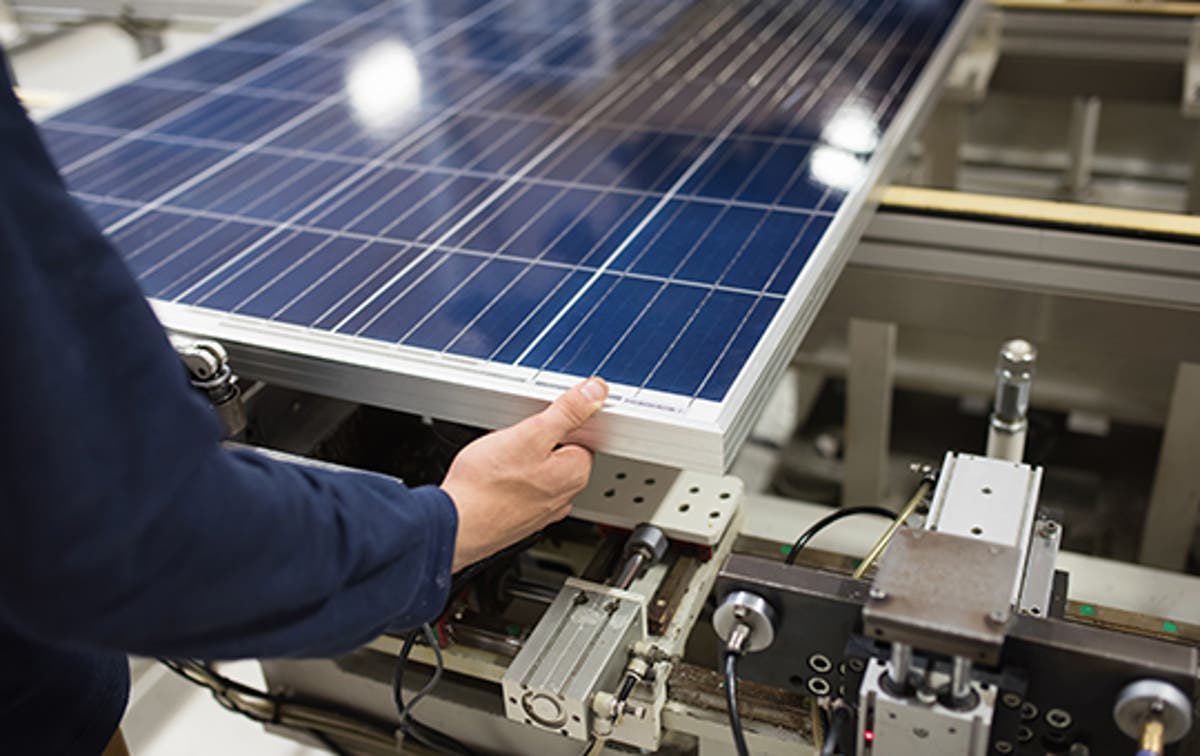Energy
FG targets N7bn VAT revenue, $10m import substitution with solar power initiative
Published
5 years agoon

The federal government of Nigeria has launched an initiative as part of the Economic Sustainability Plan (ESP) to achieve the roll out of 5 million new solar-based connections in communities that are not grid connected.
The Central Bank of Nigeria (CBN), stated in the released the Framework for Implementation of the Solar Connection Facility that the project is part of efforts by the federal government to support the economic recovery in response to the COVID-19 pandemic.
Read Also:
The apex bank stated that the pathways to energy access, financial inclusion and poverty reduction are closely linked and requires rapid scale of pay-as-you-go (PAYG) off-grid technologies.
These technologies, the CBN said will create a $2 billion (N7.5 trillion) annual market opportunity as penetration currently is less than 5 per cent of total market potential.
“This program is expected to generate an additional N7 billion increase in tax revenues per annum and $10 million in annual import substitution.
“The solar connection Scheme is a Federal government initiative whose objectives are to expanding energy access to 25 million individuals (5 million new connections) through the provision of solar home systems (SHS) or connection to a mini grid; increasing local content in the off-grid solar value chain and facilitating the growth of the local manufacturing industry; and incentivizing the creation of 250,000 new jobs in the energy sector,” the framework stated.
The Central Bank has therefore introduced the Solar Connection Intervention Facility to complement the Federal government’s effort of providing affordable electricity to rural dwellers through the provision of long term low interest credit facilities to the Nigeria Electrification Project (NEP) pre-qualified home solar value chain players that include manufacturers and assemblers of solar components and off-grid energy retailers in the country.
In terms of prohibited activities, the CBN emphasised that the facility shall not be used to finance the importation of fully assembled solar components and balance of system.
Eligible Criteria
The eligible obligors should demonstrate verifiable evidences of:
- Technical capacity: Eligible manufacturers must demonstrate a track record of experience in manufacturing of key off-grid components up to the quality standards instituted by the Rural Electrification Agency (REA) and/or Standards Organizations of Nigeria (SON)
- Financial capacity: Eligible manufacturers must demonstrate financial capacity to repay the loan through a sufficient debt service current ratio (DSCR).
- Off-take agreement: Eligible manufacturers must provide evidence of an irrevocable off-take agreement with one or more Nigeria Electrification Project (NEP) prequalified companies
- Local content: Eligible component manufacturers are Nigerian-owned entities or consortiums involving a minimum of 70% local ownership
- Job creation focus: In line with the program’s job creation objectives, eligible manufacturers must demonstrate commitment to employing local talent with a detailed vocational and technical training plan
- Vertically integrated participants: Downstream participants (SHS distributors and mini gird developers) planning to manufacture or assemble their own products will need to comply with the criteria above, including terms of technical capacity by demonstrating ability to comply with the REA and SON quality standards.
_______________________
Get complete document here
Share this:
- Click to share on X (Opens in new window) X
- Click to share on Facebook (Opens in new window) Facebook
- Click to share on WhatsApp (Opens in new window) WhatsApp
- Click to share on Pocket (Opens in new window) Pocket
- Click to share on Telegram (Opens in new window) Telegram
- Click to email a link to a friend (Opens in new window) Email
- Click to share on LinkedIn (Opens in new window) LinkedIn
You may like


Nigerian Banks Set New Target to Respond to Frauds


NCC, CBN Introduce 30-Second Refund Rule for Failed Airtime and Data Purchases


Banks’ N1.96Trn Black Hole: Who Took the Loans, Who Defaulted, and Why the Real Economy Suffers


How Policy Missteps Weigh Down Nigeria’s Fragile Banking Giants


Nigeria at 65: A Nation Still Waiting for a Banking Revolution


Nigeria’s Banking Woes: How One South African Bank Outvalues an Entire Industry












